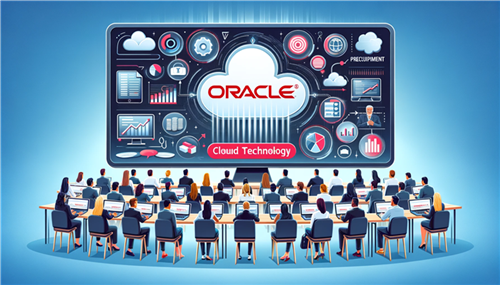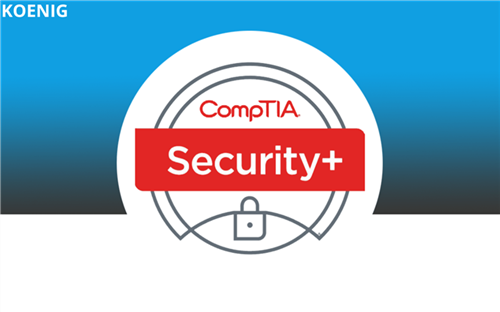(1).pngL.jpg)
Every business organisation across the world is undergoing a revolutionary digital transformation process. Since the start of the Covid-19 pandemic, businesses have been forced to accelerate their transformation journey for the remote lifestyle of the new normal.
Businesses are introducing many futuristic technologies into their workflows, such as Hyperautomation, Machine Learning, AI and the Internet of Things, among others. These technologies support remote working and no-contact working styles, reduce the cost of operations and increase efficiency.
For a successful career in the IT industry, all aspiring professionals need to learn about these upcoming technologies and train in their usage, architecture and deployment. DevOps is a growing domain that is very high in demand within the industry. DevOps is a field that revolves around combining IT and development operation processes within a product's delivery lifecycle. This offers many benefits like continuous delivery, increased customer satisfaction and faster production. It is no surprise then that the demand for certified DevOps professionals has gone up by about 45% in the past 5 years.
Here's a list of the best DevOps certification courses that you can use to start or advance your career in the domain.
1. Docker Certified Associate:
The DCA (Docker Certified Associate) certification is targeted to the practitioners of Docker who have some beginner-level experience working with this tool. This certification validates your skillset using real-world problems and solutions that experienced Docker professionals have designed.
The DCA certification is made up of 55 multiple-choice questions that need to be answered within 90 minutes. The topics covered in this certification are:
- Security
- Networking
- Management
- Orchestration
- Configuration and installation
- Image creation
- Storage
- Volumes
- Registry
The benefits of this certification are
- Validation of your Docker expertise through an official credential.
- Usage of the DCA logo and the official certificate.
- Verification of your Docker-certified status online by future employers.
- Exclusive access granted to Docker professionals on LinkedIn along with invitations to official events.
2. Kubernetes Certification
Kubernetes is an open-source container orchestration system. It is a collaboration between the Linux Foundation and the CNCF (Cloud Native Computing Foundation), designed to automate the deployment and management process for multi-container applications. Kubernetes is among the top DevOps tools that exist today and enables entire DevOps teams to stay abreast with the evolving software development requirements. There are two Kubernetes certifications you can choose from.
CKA (Certified Kubernetes Administrator)
The CKA program evaluates the knowledge, proficiency and skills that Kubernetes Administrators must have. The online CKA certification exam comprises a set of performance-based problems that you need to solve in 3 hours in a command line. Users display their competence in a command-line hands-on environment within the program. The objective of the CKA program is to validate the candidate's skills, knowledge and competency when it comes to performing a Kubernetes administrator's responsibilities. The topics covered within this certification exam are:
- Installation, Configuration and Validation - 12%
- Networking - 11%
- Application Lifecycle management - 8%
- Core Concepts - 19%
- Security - 12%
- Scheduling - 5%
- Storage - 7%
- Cluster Maintenance - 11%
- Troubleshooting - 10%
- Logging and Monitoring - 5%
CKAD (Certified Kubernetes Application Developer)
The CKAD certification has been designed targeting professionals who implement foundational practices within the Kubernetes ecosystem. You will be tested to check how you design, build, expose and configure native cloud applications using Kubernetes. Earning a CKAD certification is the first step of the process and allows application development candidates to establish their credentials and credibility with their potential employers. It also allows organisations to upgrade their hiring pace and capabilities in their growth journey.
To get certified, candidates must know about the techniques for the application of Cloud-native concepts, Container Runtime that is OCI-compliant and programming languages like Python, Java and Go. This certification validates your skills, expertise, application expertise and understanding of the Kubernetes ecosystem.
The CKAD exam is made up of problem-solving questions that you must answer within 2 hours. The topics covered in the exam are:
- Multi-container Pods - 10%
- Core Concepts - 13%
- Pod Design - 20%
- Configuration - 18%
- Observability - 18%
- State Persistence - 8%
- Services and Networking - 13%
Also Read: A Complete Guide: How to Become an AWS Certified Developer
3. AWS Certified DevOps Engineer Professional Exam:
A suite of AWS certifications is available for professionals who carry out different roles within the AWS Cloud environment. The AWS DevOps Engineer Professional certification is a validation of your expertise and technical skills in the operation and management of distributed systems and applications on AWS.
To earn this credential, candidates need a strong understanding of the methodologies and processes that are required for operations and development. They also need to have experience in building an automated infrastructure as well as the administration of operating systems.
There is a wide variety of books, documents, white papers, practice exams, discussion forums and online Devops courses available to help you prepare for this certification. You can give the exam in English, Chinese, Korean and Japanese. It is made up of about 40 to 65 multiple-choice questions that you must answer in under 170 minutes. The topics covered in this exam are:
- Incident and event response
- Policies and standards automation
- SLDC automation
- Management of configuration and Infrastructure as Code
- Monitoring and logging
- High availability, fault tolerance and disaster recovery
4. Azure DevOps Solution Certification Exam
Azure is a cloud computing service by Microsoft that is similar to the Google Cloud Platform and AWS. It has a wide spectrum of services on offer, including email servers, web servers, file storage servers, databases, virtual machines, and user directories. The incorporation of Azure and DevOps solutions can simplify and speed up the DevOps process, which results in more reliable and faster deployments. Therefore, this certification is one of the best DevOps certification courses out there, targeted to Azure professionals who are currently DevOps engineers.
Among the range of Azure certifications available, the DevOps Solution Certification validates your expertise and skills as an Azure DevOps professional. These professionals are most likely already working as DevOps professionals with experience in implementing and designing DevOps best practices for compliance, testing, release and infrastructure, among others.
The Azure DevOps Solution Certification Exam requires an Azure Administrator Associate and Azure Developer Associate certification before you can aim for this credential. The certification exam comprises 40-60 multiple-choice questions that you must answer in 170 minutes. The topics covered in this exam are:
- Implementing DevOps development processes
- Continuous delivery
- Continuous integration
- Designing a DevOps strategy
- Continuous feedback
- Application infrastructure
- Dependency management
5. Puppet Professional Certification
Over 35,000 business enterprises across the world use Puppet, which you can earn by clearing the System Administration Using Puppet Exam. This certification was designed to meet the growing demand for developers, administrators, engineers, architects and managers.
The Puppet Certified Professional certification validates the skills and knowledge of professionals relating to IT automation Puppet software. While training for this credential, you learn data separation, external data sources and other modules. All the information you need and should know is given in the Puppet Language Style Guide. It helps you to prepare for all the Puppet documentation and industry practices.
Candidates applying for this certification need to:
- Working knowledge of the Apply and Forge to Find modules.
- Understand troubleshooting strategies for Puppet code and its core platform components.
- Understand strategies for classification which can be used for setting class parameters and variables.
- Understanding practices for module testing, module structure and the arrangement and designing of roles and profiles.
The certification exam is made up of 60 multiple-choice questions that you need to answer in 90 minutes. The topics covered in the test are
- Idempotence
- Puppet facts
- Resource abstraction
- Puppet agent lifecycle
- Working knowledge of Puppet
- Understanding of Hiera and its data service capabilities
- Tricks to define dependencies in Puppet code.
You May Also Like: AWS vs. Azure – Which is better?
6. Architecting with Google Cloud Platform
Candidates must be familiar with cloud computing infrastructure to stay ahead in the market today. This certification is a specialisation that introduces professionals to Google Cloud's comprehensive platform and support service, focusing on the Compute Engine. It provides an understanding of the resilient, global infrastructure and services that the Google Cloud Platform provides.
This certification covers practical solutions that include interconnecting networks securely, encryption keys, access management and security, resource monitoring, billing, and quotas. It is preferred mainly by DevOps Engineers, Cloud Solutions Architects and professionals using Compute Engine.
This Google Cloud Platform certification encompasses the GCP basics and infrastructure components, as well as several exercises to clear your doubts and build your knowledge Bank.
You need to get hands-on experience with the DevOps solution you want to get certified in. You have a greater chance of getting certified with the right training. Take your career to the next level and enrol in a DevOps certification course today.


(1).pngM.jpg)
.pngM.jpg)
.pngM.jpg)
min.pngM.jpg)

COMMENT